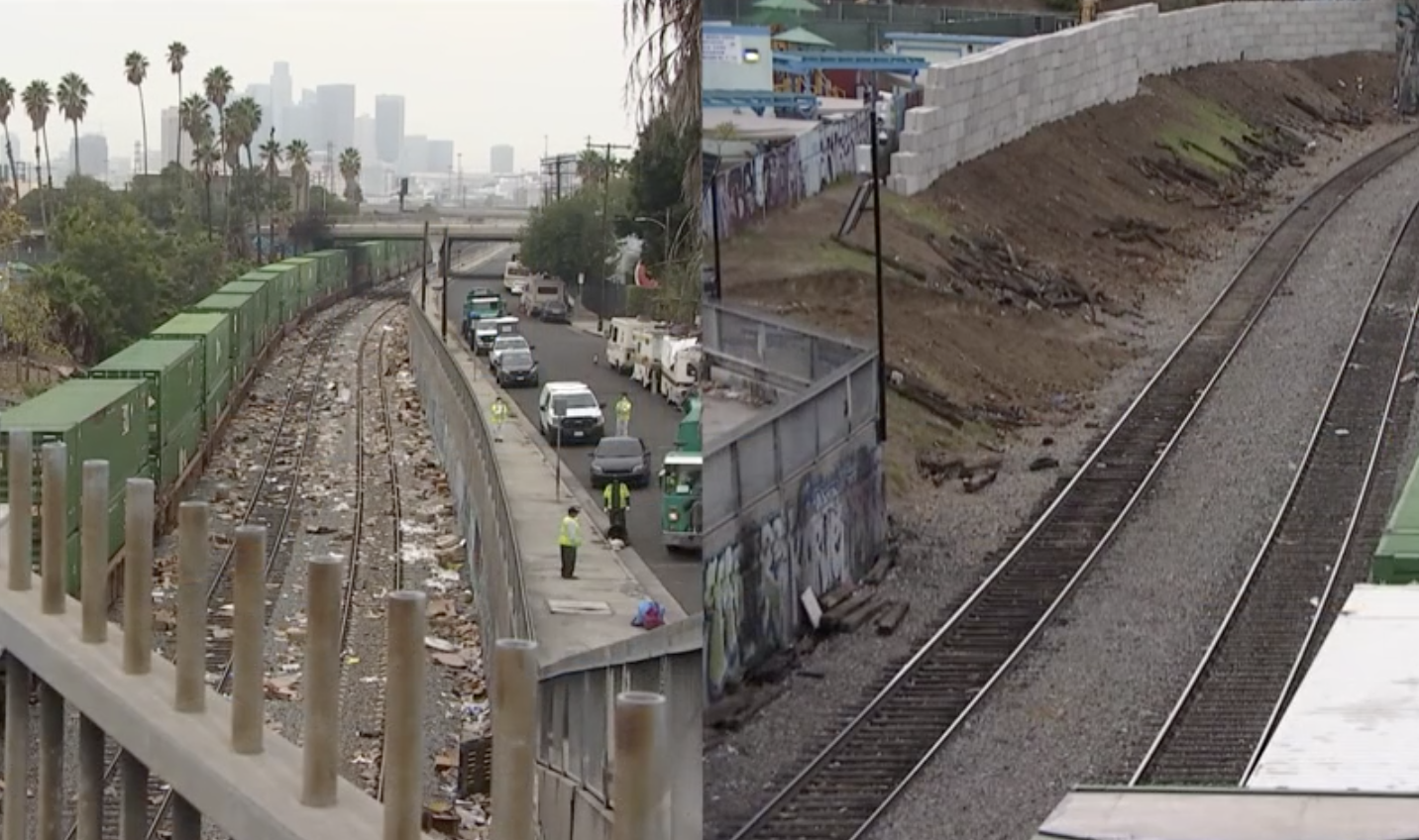Los Angeles City Councilman Kevin De León announced Thursday he plans to file a motion this week to request that the city attorney's office report back with potential legal remedies against Union Pacific for what the councilman called a long history of environmental and safety violations by the train operator plaguing two of the city's predominantly Latino neighborhoods.
The motion, impacting residents in El Sereno and Lincoln Heights, is set to be filed at Friday's city council meeting.
“Union Pacific has exploited our communities, treating the people of El Sereno and Lincoln Heights like disposable resources. They have poisoned our air, jeopardized our safety and dismissed our voices, all in the relentless pursuit of profit,” De León said. “We're here to say today that those days are over.”
The motion states that Union Pacific has long violated state regulations with what De León called illegal stoppages — trains idling for hours on end along train tracks, often blocking intersections affecting the motoring public and emergency vehicles and adding to the area's air pollution.
Get top local stories in Southern California delivered to you every morning. >Sign up for NBC LA's News Headlines newsletter.
“Despite decades of complaints, the community's voices have gone ignored. Union Pacific Railroad has built its empire by turning a blind eye to communities it pollutes,” De León said. “For years, there have been spewing poison into the air, poison that our children breathe into the lungs every single day, the lungs of our families who live here.”
NBC4 has also reported extensively on cargo thefts along stopped or idling Union Pacific trains in recent years near downtown Los Angeles.
“When you sort of kind of uncover it a little bit more, it's because they were idling for the longest time,” De León said. “It was organized criminal cartel rings that decided to take advantage of that opportunity.”
Union Pacific provided the following statement: "Union Pacific has a history of working collaboratively with the City of Los Angeles and agencies who work directly with railroads. We have not received any communications from the Councilmember's office related to the concerns referenced. His office has reached out previously on unrelated inquiries, and we responded accordingly. We would welcome an open dialogue with the appropriate city leaders to discuss any concerns with our operations."
De León's office provided video from two cameras set up at train crossings showing vehicles and people dangerously crossing over trains as they blocked intersection.
On at least one other occasion, video shows an emergency vehicle going around railroad crossing gates to continue on its route.
"There's been years that we tried to complain about the train, the idling, which is not healthy for our community,” said Robert Vega, a longtime resident of the area. “If they were to park maybe a half block further down, it wouldn't affect the community, but they insist on parking in front where it affects the community.”
De León is seeking several legal avenues from the city attorney’s office.
“I intend to submit a motion calling on the Los Angeles City attorney to report on all of our legal remedies, our options to hold Union Pacific accountable and sue them in a court of law,” he said.



